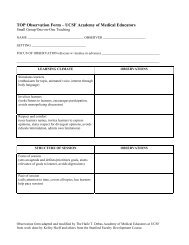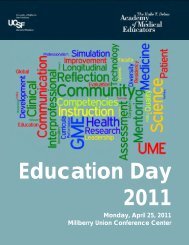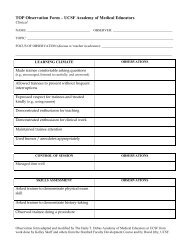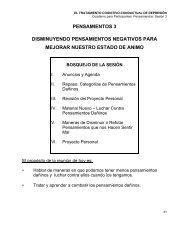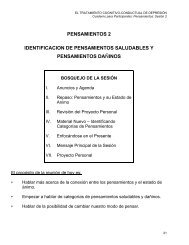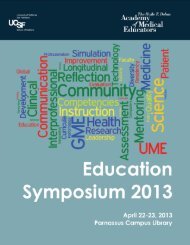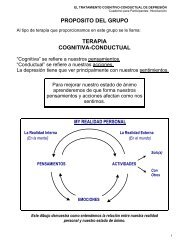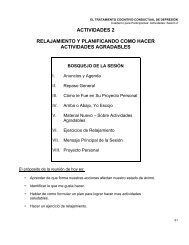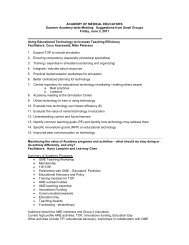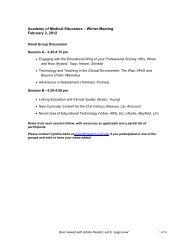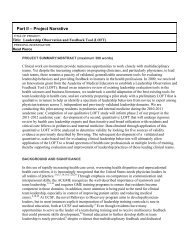The Healthy Management of Reality - Stanford University
The Healthy Management of Reality - Stanford University
The Healthy Management of Reality - Stanford University
You also want an ePaper? Increase the reach of your titles
YUMPU automatically turns print PDFs into web optimized ePapers that Google loves.
- <strong>The</strong> child's core beliefs. Though a child has many instinctualcharacteristics and genetic predispositions when born, his or her initial set <strong>of</strong>beliefs about the world are learned at home. It is important to consider theconsequences <strong>of</strong> the beliefs one inculcates in the child. For example, one suchbelief <strong>of</strong> many young children is that the parents know everything and make nomistakes. And a belief connected to this is that what the parent says must alwaysbe accepted (because the parent is always right). <strong>The</strong> danger <strong>of</strong> this set <strong>of</strong> beliefs isthat, once the child becomes able to catch the parents making mistakes, his or herfaith can be shaken enough to lead to the opposite set <strong>of</strong> beliefs: that the parentdoesn't know anything, is always wrong, and that nothing that the parent saysshould be accepted. (This is a clear case <strong>of</strong> "all-or-nothing thinking.") To avoidthis development, one should consider actively teaching the child that one makesmistakes, helping the child catch one making one, and showing pride in the childwhen he or she does so. One's advice or directives then become important becausethey are reasonable, not merely due to parental authority. This is the best way toincrease the chances that they will be used once the child is not in the parents'presence.- Learning to create meaning. This crucial human ability must be a keyaspect <strong>of</strong> our makeup, but it is still subject to learning. For a child to learn that lifehas meaning, that human beings have innate and incalculable value, that love isreal, that truth, knowledge, and justice are worth dedicating one's life to, thesemessages must be woven into their everyday lives. <strong>The</strong>y cannot be merelymouthed or read at special occasions. And, above all, they cannot be foisted onthem to control their behavior, but ignored by the adults in their world. This meansthat parents must teach their children those things that are truly a part <strong>of</strong> their ownphilosophy <strong>of</strong> life, their own existential stance toward life. And, if there are doubtsHMOR.July2005.Muñoz.doc 56



